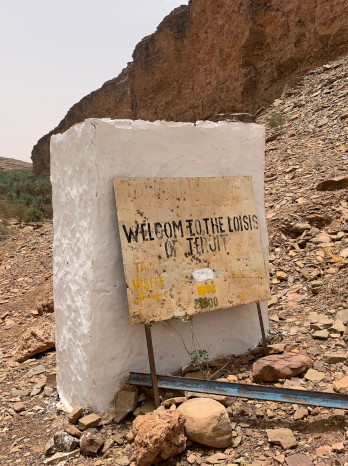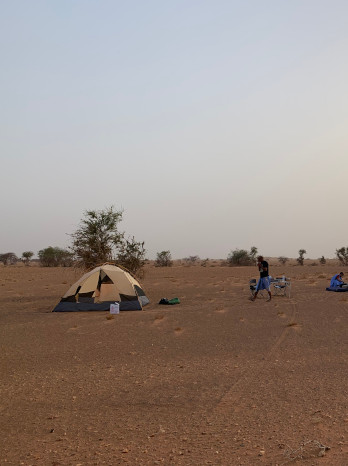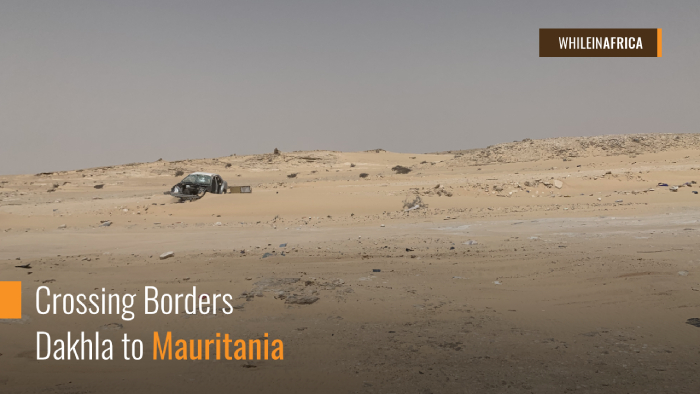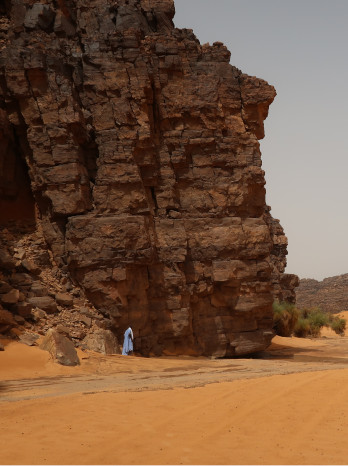Mauritania
READ MOREMauritania, officially the Islamic Republic of Mauritania, is a country in Northwest Africa. It is the 11th largest sovereign state in Africa bordered by the Atlantic Ocean to the west, Western Sahara to the north and northwest, Algeria to the northeast, Mali to the east and southeast, and Senegal to the southwest. Approximately 90% of Mauritania’s land is within the Sahara.
Mauritania’s tourism is yet to gain a foothold due to its negative stigma being an unsafe destination. This is due to its past issues on killings and kidnappings from decades ago and the fact that most website embassies still advises travelers against travel to the country. Adventure tourists, however continue to visit this destination and witnessing its safety first hand, the world is slowly hearing about Mauritania as a safe and rising tourist gem.
Other
Information
CURRENCY
Mauritanian Ouguiya. (1 USD = 36.5 MRU – Jan 2020)
LANGUAGE AND POPULATION
Modern Standard Arabic is recognized as the official language of Mauritania. French is spoken as a foreign language in the country. Several minority languages are also spoken by the ethnic minorities living in Mauritania. These include Wolof, Pulaar, Soninke, and Bambara. Very few people speak English.
Capital City
The capital and largest city is Nouakchott, located on the Atlantic coast, which is home to around one-third of the country’s 4.65 million people.
Government
Mauritania is a republic. The president, elected by popular vote for a five-year term, is head of state and government and is assisted by the prime minister, whom he appoints.
Religion
Officially, 100% of the country’s citizens are Muslim, although there is a small community of Christians, mainly of foreign nationality. The people of Mauritania are nearly all adherents of Sunni Islam.
SIZE
1.03 million km² in area and with an estimated 2020 population of 4.65 million


Highlights
01 Endless desert and rock formations
02 Oasis and visiting villages in the desert
03 Camping in the desert
04 Nomad lifestyle
05 Longest and heaviest train in the world
Top 5 Destinations
01 Chinguetti
02 Ouadane
03 Tichitt and Oualata
04 Eye of the Desert
05 Terjit Oasis
Unique Experience
• Witnessing the life of a nomad in the desert
• Riding through the desert with the worlds longest train
• Tea ceremony
• The food culture – A unique way of sharing their food
• Camping in the endless desert
• Dressing up like the locals in Mauritania
Local Cuisines
Couscous
Made from scratch from millet, wheat or barley flour and usually served with meat.
Tyebou Djen (Thieboudiene)
Considered a national dish, which is fish and rice with sauce made from tomatoes.
Mechoui
This is grilled meat usually lamb.
Yassa
Typical of Western African cuisines. This is meat, often chicken cooked in a sauce made with onions and tomatoes.
Benava
Meat with boiled potatoes.
Type of Travel
Guided Tours
If you want to do a multi-day desert tour, it’s a must to book through a local tour operator as roads are unmarked, there are several military checkpoints, and you simply need a local to get by especially once outside the city. Make sure to request for an English-speaking guide (or whatever language is suitable for you) as otherwise, you will miss the history knowledge the sites has to offer.
Road and Bus Travel
There are vans from one city to another but you’d have to ask a local on the latest schedule, where to get tickets, etc… In cities such as Nouakchott and Nouadhibou, you can get around on foot but best to ask assistance from your tour operator to arrange for transportation to your flights and other destinations. If staying in a hotel, you can get assistance from them too.
Budget Traveling
Hotels are expensive and of basic to average quality unless willing to pay the price for the few good ones. There are cheaper and better options via Airbnb or apartment rentals in Booking.com that comes cheaper with complete amenities such as kitchen and a huge living room.
Least Favorite
• Lack of internet connection even in hotels
• Very poor infrastructure
• Really nothing much to do in the city
• Expensive flights and lengthy/ challenging for overland trips
Planning Your Trip
Time allocation and itinerary suggestion
• When doing a multi-day tour, allot at least 7 days
• Avoid traveling during the hot season as it’s way too hot you’d have to take a customary 3-5hr break from noon to about 5pm leaving you with very few hours to explore.
• Your chosen tour operator will present a multi-day itinerary visiting several places in the course of 1 week or longer. Check each place if it appeals to you. There will be a lot of rough road and driving through endless desert
• Accommodation will vary from camping in the desert to staying in hotels. Camping is a great experience where you can admire star-flooded skies. There are no established campsites, your tour operator will select the best spot depending on where you are so expect to be alone in the desert (with your tour operator). This offers a surreal feeling as if there’s no one else in the world. Mind that there are no areas for toilet as well so you’d have to find your “spot” for that too.
• Meals will be prepared by your tour operator most of the time from breakfast to lunch through the back of the truck “camping style”. They usually get (limited) supplies everyday as you pass by small villages. Food is often basic and it’s common to consume lamb or camel meat. If you are particular on what you will eat, make sure to communicate properly to your tour operator before the start of the trip as your preferred supplies are likely only available in the big cities. Ask for the meal plan if in doubt, as once in the desert, your choices are limited to none.
• You can also opt to stay in hotels instead of camping if that style is more convenient for you. Make sure to check out hotel quality. Note that your tour operator will still prepare your food in this set-up. Hotels outside the city usually only offers accommodation and doesn’t always come with a restaurant.
Getting Here
There are a few direct flights while most international flights make a connection in the Middle East or Casablanca. From Morocco, you can cross the border to Mauritania by land by making your way to Dakhla in Western Sahara. It is also common to travel by land from Senegal in to Mauritania.
FROM US
FROM EUROPE AND UK
FROM ASIA
Safety & Security
Mauritania is seen as an unsafe country and most travel advisories to date advise against all but essential travels to the country. All we can say is that as recent travelers, our experience has been pleasant. The challenges we’ve had were mostly due to poor infrastructure (difficult internet, transportation and limited food options) but we didn’t feel threatened in any way during our 10 days stay in Nouakchott, Nouadhibou, and through the desert as we did our tour. People are friendly and generally keep to themselves and there were no beggars in and out of the city. In some areas, children were asking for alms but nothing compared to far off-putting incidents we’ve experienced in other more touristy destinations in Africa.
Getting Around
There are no public buses in Mauritania, but there’s a few companies that run routes between a few cities including the capital, Nouakchott, and Nouadhibou. Most of the vehicles are minibuses. Some of the more popular companies which operate on the route between Nouadhibou and Nouakchott include MT Global, El Bouragh and LTM.
Within the city, there are private taxis but can be rather expensive and unmetered so make sure to agree on the price beforehand. Another popular mode of transportation is bush taxis, which travel between towns.
Outside the big cities, transportation is difficult so have this arranged with a tour operator. Renting a car is possible from the large towns . Note that outside of the main cities, most roads are unpaved and are only passable with a four-wheel drive.
Train travel is only available in northern Mauritania between the cities of Nouadhibou and Zouerat but this is more of a tourist attraction than an actual public transportation that locals use.

How surprising it is to arrive in Mauritania with a tinge of fear and realize shortly that there is nothing to fear but the world’s unjust reputation of her
Related Articles

Crossing Borders Dakhla to Mauritania
I thought crossing the border from Dakhla in Morocco to Mauritania was going to be really challenging and "unsafe" based on others' reaction upon telling them our plans. I imagined some militiamen with guns walking out and about where we need to keep our heads down as...

